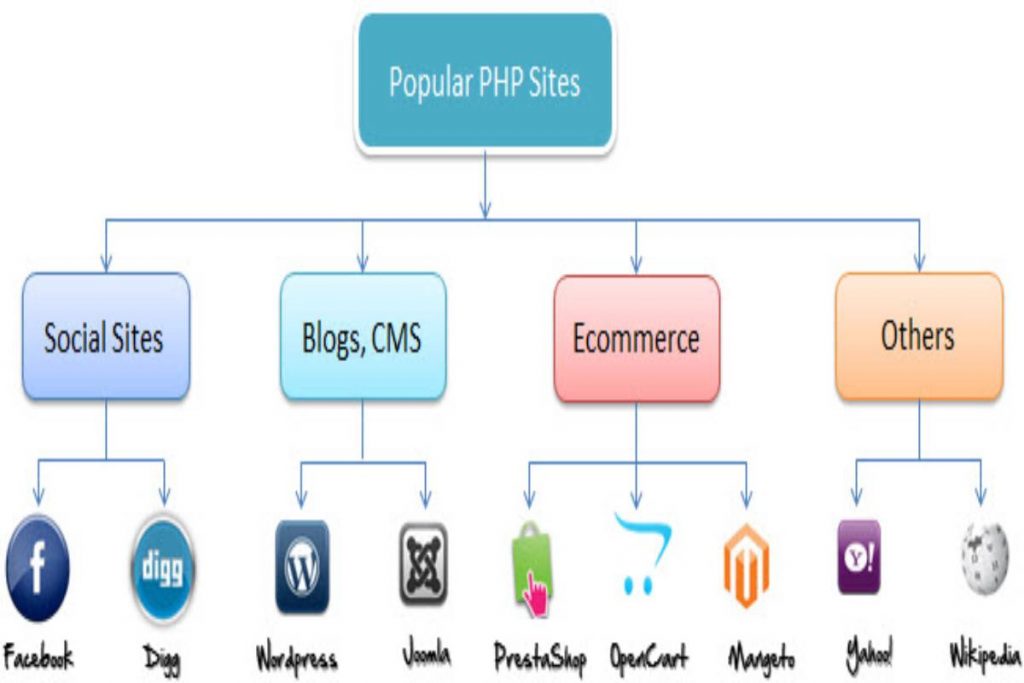PHP is the open-source, interpreted, and object-oriented scripting language that executes on the server side.
And also fine-suited for web development. Therefore, it develops web applications (an application that executes on the server and generates the dynamic page).
Also, it creates Rasmus Leadoff in 1994 but appear in the market in 1995. And also 7.4.0 is the latest version of PHP, which release on 28 November. And some crucial points that need notice about PHP are followed:
PHP stands for Hypertext Preprocessor.
Also, it interpreted language, i.e., there is no need for compilation.
And PHP is faster than other scripting languages, for example, ASP and JSP.
Also its server-side scripting language, which uses to manage the dynamic content of the website.
And embed into HTML.
And also its the object-oriented language.
Also its open-source scripting language.
And also, it simple and easy to learn the language.
Table of Contents
Why Uses PHP?
- It server-side scripting language, it uses to designs the dynamic web applications with MySQL database.
- It handles dynamic content, database as fine as session tracking for the website.
- We can create sessions in it .
- It can access the cookies variable and also set cookies.
- Also, it helps to encrypt the data and apply validation.
- And also it supports several protocols such as HTTP, POP3, SNMP, LDAP, IMAP, and many extras.
- It also uses it language, and we can control the user to access some pages of your website.
- Its easy to install and set up, and also the best language to learn.
- And also can handle the forms, such as collecting the data from users using forms, saving it into the database, and returning helpful information to the user. For example – Registration form.
What are the Features of PHP?
1. Performance
- The PHP script executes much faster than those written in other languages such as JSP and ASP.
- And also uses its memory, so the server workload and loading time automatically reduce, resulting in quick process speed and better performance.
2. Open Source
- The PHP source code and software are freely available on the web. We can develop all the versions of its according to our requirements without pay any cost. All its components free to download and use.
3. Familiarity with the Syntax
- It takes easily understandable Syntax. And programmers are comfortable coding with it.
4. Embedded
- The PHP code can easily embed within HTML tags and script.
5. Platform Independent
- Its exist for WINDOWS, MAC, LINUX & UNIX operating system.
6. Database Supports
- It supports all critical databases such MySQL, SQLite, ODBC, etc.
7. Blunder Reportage
- It takes predefine error reporting constants to generate an error notice or warning at runtime. Example E_ERROR, E_WARNING, E_STRICT, E_PARSE.
8. Loosely Typed Language
- It allows us to use the variable without declaring its datatype. It takes automatically at the time of execution based on the types of data it contains on its value.
9. Web servers Support
- It compatible with almost all local servers used today like Apache, Netscape, Microsoft IIS, etc.

